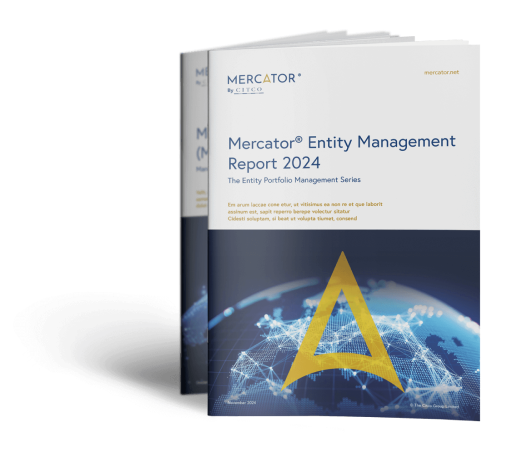The information contained in this document is marketing material and for informational purposes only. The information contained in this document is presented without any warranty or representation as to its accuracy or completeness and all implied representations or warranties of any kind are hereby disclaimed. Recipients of this document, whether clients or otherwise, should not act or refrain from acting on the basis of any information included in this document without seeking appropriate professional advice. The provision of the information contained in this document does not establish any express or implied duty or obligation between Citco and any recipient and neither Citco nor any of its shareholders, members, directors, principals or personnel shall be responsible or liable for results arising from the use or reliance of the information contained in this document including, without limitation, any loss (whether direct, indirect, in contract, tort or otherwise) arising from any decision made or action taken by any party in reliance upon the information contained in this document. © The Citco Group Limited, December 2024.
Data dilemma – is information helping or hurting your compliance?
The data explosion of the past decade has had major repercussions for companies around the world, both public and private.
From healthcare to finance, data is accruing constantly in every field and is used to shape how industries work now and into the future. One forecast from Statista predicts that the total amount of data globally will triple between 2020 and 2025, as the volume of information created, captured, and consumed soars. All this information can be a force for good for multinationals, but it is no straightforward process to get the best out of it.
There are many factors to consider when it comes to data and how it can help (or hinder) multinationals’ efforts to comply with the rules governing their different entities.
Below are three core areas to focus on:
1. Where is your subsidiary/entity portfolio data and information coming from?
It’s important to know where your data is coming from, and exactly who in your organization is tracking it. If there are multiple people involved in doing so, are they in close communication, or spread across the globe?
Much of this process may be manual, requiring team members to use up time monitoring and reviewing the information.
Other considerations include whether the data is coming through in a uniform way across jurisdictions, or whether it’s being shared in different formats and looking at different time-periods.
How often the data is reviewed for accuracy, and who in your business is handling this, are also key questions, while historical data must not be overlooked – especially when it concerns corporate activity, like mergers and acquisitions.
This also applies to internal data. Your business needs to be able to carry out various activities – such as easily identifying all the subsidiaries a director is appointed to – to ensure continuity if you have personnel changes.
2. Who is managing your data?
Is there one centralized person managing this information for the organization and all subsidiaries, or is it handled by several? Are there different people managing by region or country, and who do they report to? Similarly, are some countries/entities outsourced and some handled in-house? When there is an event like a name change, who tracks this?
If any entities have gone through corporate activity, it is also important to consider who monitors this post-acquisition.
Overall, knowing who is in charge of the data and what the reporting lines are for that person or team is crucial. Without this, access, control and use of data can be challenging.
3. How secure is your data?
Security is critical to all businesses, and the ramifications of a data breach can be devastating. If any of your businesses or subsidiaries are keeping hard copies of data on premises, you need to consider how secure it is, and whether technology could better serve you in future.
Innovations like cloud software are transforming data storage, meaning businesses can do away with mountains of physical files and documents.
That is why outsourced data storage is big business. While no solution is 100% secure, it can be an efficient way to handle and manage your data.
Conclusion
Data is crucial to the smooth running of entities globally, but there are vast amounts of it produced every second.
By engaging with experts who can help handle the data, multinationals can start to harness the full potential of their information, while remaining fully compliant with the many regulations governing this across different jurisdictions.
At Mercator, our outsourced solutions are based on years of experience of working with multinationals to ensure entities can be managed easily and efficiently, saving time and helping to cut costs. Central to our offering is Entica™ – Mercator’s proprietary Entity Portfolio Management technology platform – providing complete data transparency and access to insights at a level unseen before in the wider governance services industry.
Bianca Erb
Business Development Manager, Mercator by Citco, Citco Fund Services (USA) Inc.

